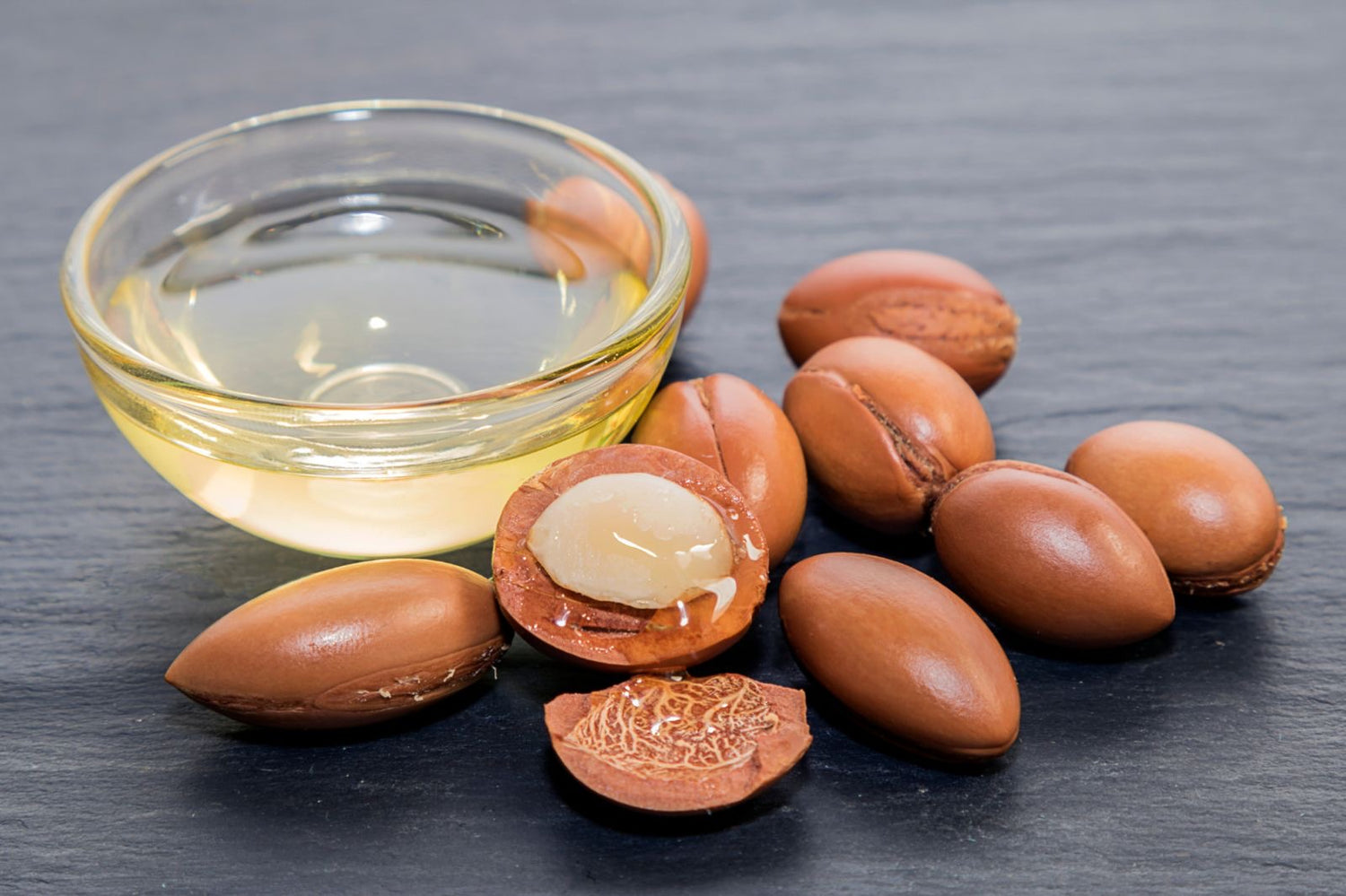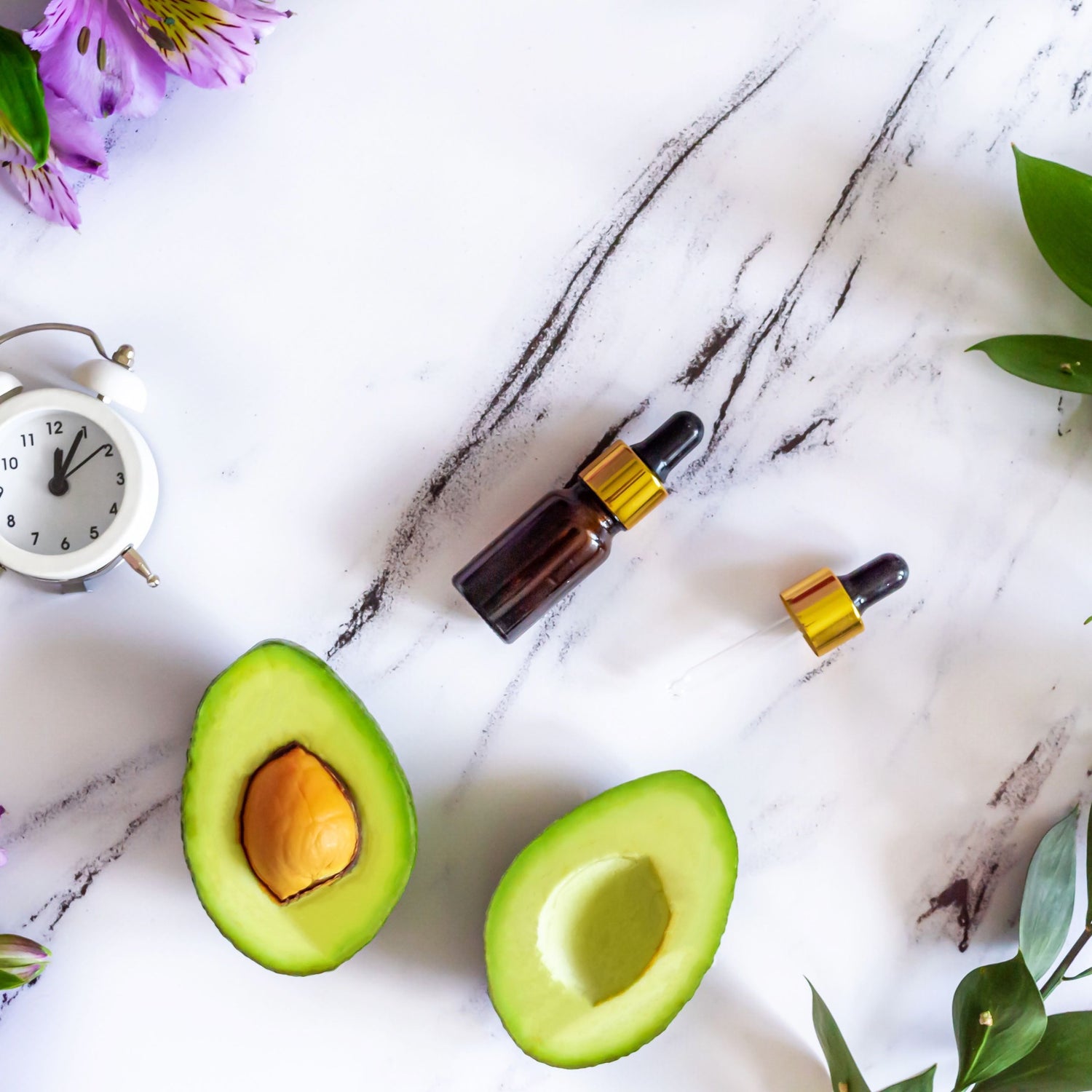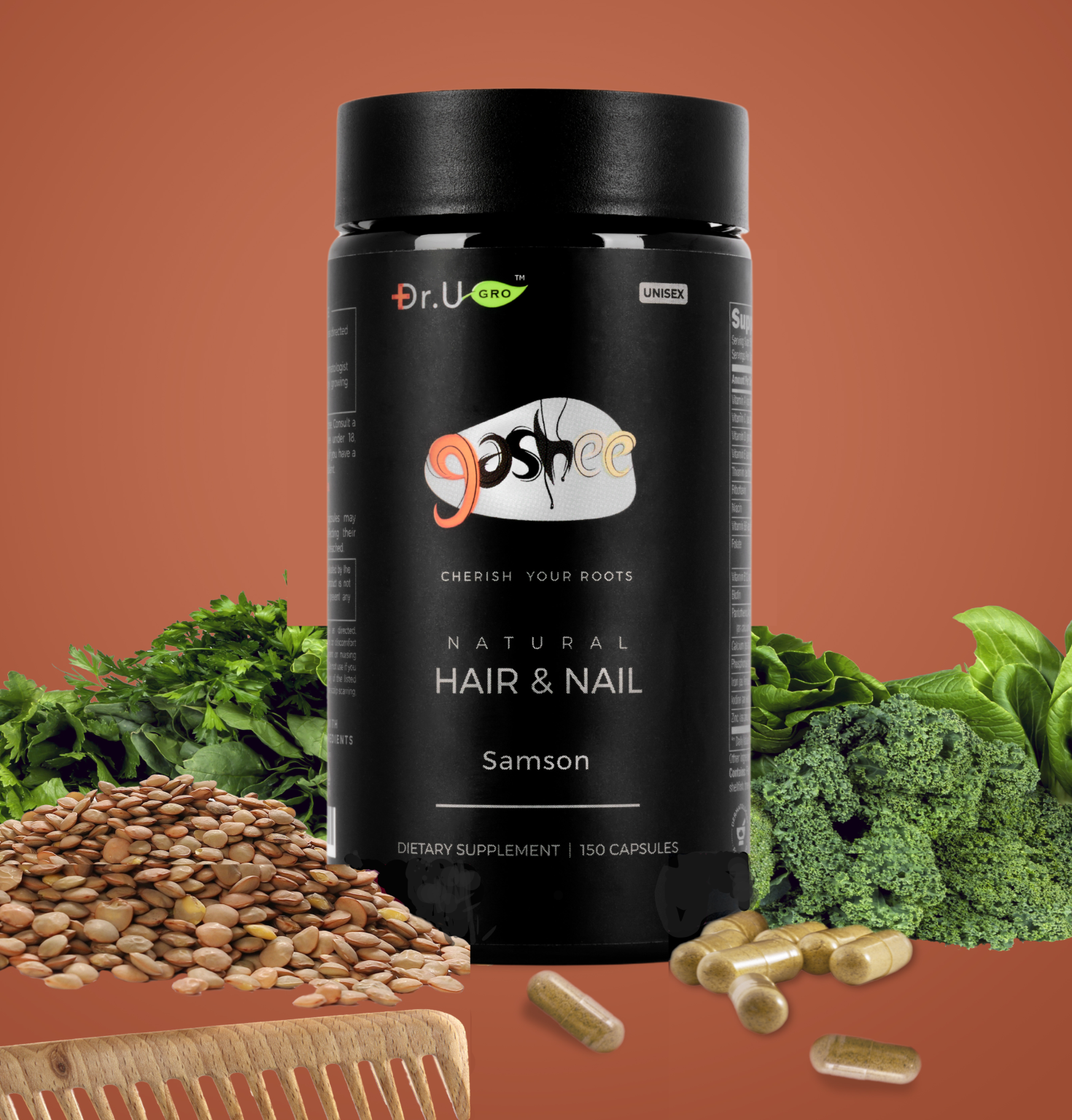Soy food products are trendy among health enthusiasts and those who have adopted plant-based diets. But they are more than just a trendy fad. Researchers find that soybean protein and fatty acids from soy oil can promote a wide range of health benefits, including hair loss reversal. If you feel inspired to introduce more soy into your diet for your hair wellness, supportive research studies can help you understand how it helps your hair and health.
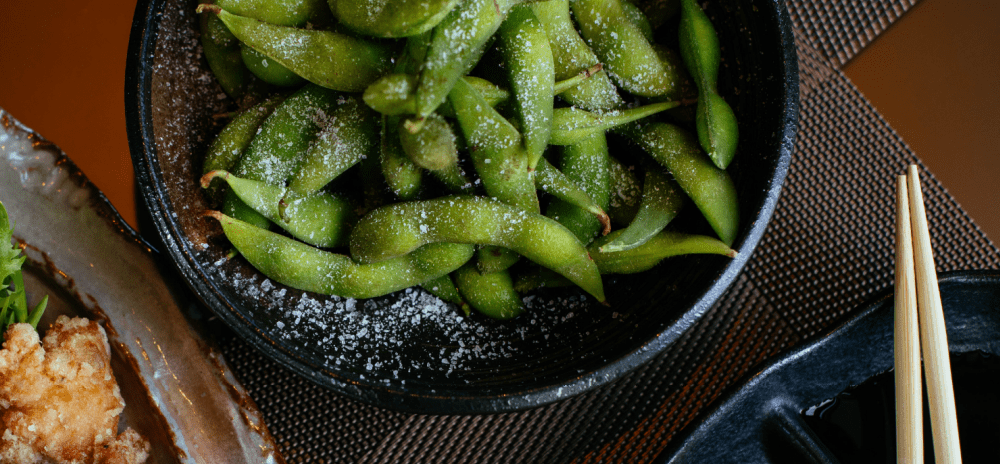 Soybeans contain unique isoflavones, which may benefit our hair and other health areas.
Soybeans contain unique isoflavones, which may benefit our hair and other health areas.
How Soy Protein May Prevent Hair Loss and Baldness
Scientific Creative Quarterly published an article entitled "Soybean and Baldness Prevention: Apparently, There Is A Link." It sheds light on how soy can help fight against hair loss, especially when baldness is a genetically predisposed condition. Common baldness also referred to as androgenic alopecia, is usually explained in protein receptors on the hair follicles, sensitive to DHT. This sensitivity is determined by genetics. The binding of DHT to these receptors triggers processes that lead to the miniaturization of the hair follicles. Soy metabolites may prevent this binding from taking place.
Soy As A Novel Inhibitor of DHT For Hair Loss
Soy is a rich source of isoflavones, including genistein and daidzin, estrogenic genistein, and daidzein's precursors. The body metabolizes daidzein into an isoflavonoid estrogen called Equol. Equol binds to the DHT to not occupy androgen protein receptors on the hair follicle [1]. (Lund et al. 2004) Genistein can also play an important role in hair follicle wellness by stimulating the skin's hyaluronic acid production. (Miyazaki 2003) Hyaluronic acid, also referred to as “nature’s moisturizer,” forms a gelatinous fluid in the dermis, surrounding the hair follicles, providing them with hydration, support, nutrients, and protection from DHT. (Hair Site 2002) In another type of hair loss, called alopecia areata, a person’s immune system attacks its own hair follicles. Researchers have found that genistein may help stop these inflammatory responses, which lead to hair loss. [2] (McElwee et al. 2003) In mice, soy oil has been found to improve resistance to alopecia areata in a dose-dependent fashion. [2] (McElwee et al. 2003)
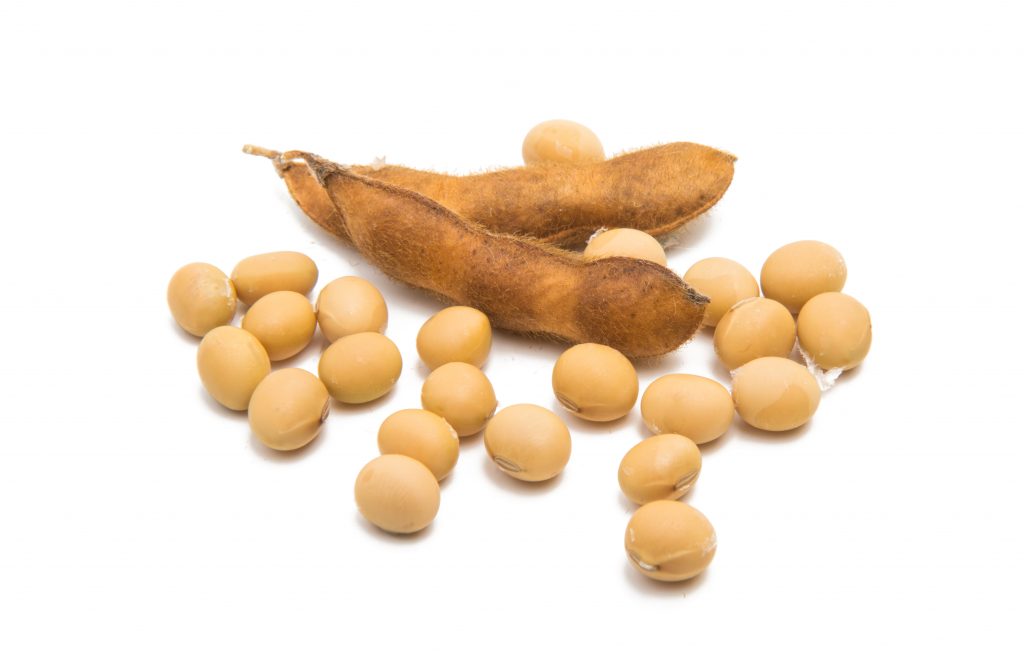 In mice, soy oil has been found to improve resistance to alopecia areata in a dose-dependent fashion.
In mice, soy oil has been found to improve resistance to alopecia areata in a dose-dependent fashion.
Does Soy Block 5a-Reductase?
As discussed earlier, DHT is central to the most well-known hair loss pathway associated with pattern baldness. It results when the 5a-reductase enzyme breaks down testosterone. Blocking this enzyme is the mechanism by which Finasteride works to prevent DHT production and hair follicle miniaturization. Nowadays, many people are interested in safer and more natural ways to inhibit this enzyme. Soy may help fulfill this expectation. A study on prostate tissue found that genistein and other isoflavones were indeed capable of blocking this enzyme. [3]
Boosting Soy Consumption, A Possible Solution For Hair Loss
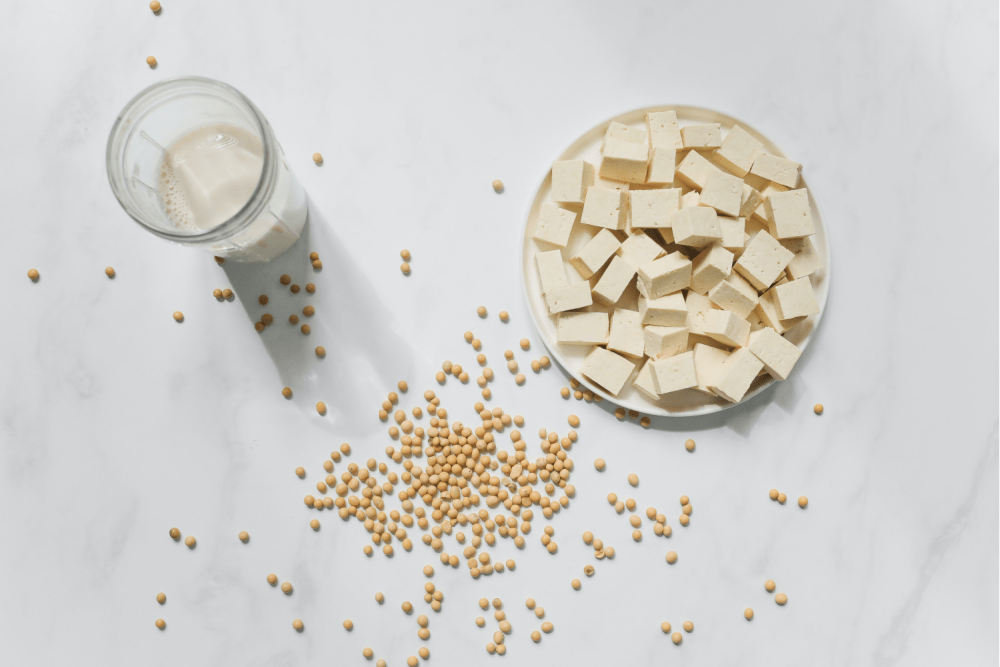 Soy food products are not just a trendy fad. Some research suggests that they may help prevent alopecia.
Soy food products are not just a trendy fad. Some research suggests that they may help prevent alopecia.
Researchers were interested in learning more about lifestyle, diet, and environmental factors as non-genetic contributors of androgenic alopecia [4]. They focused on Taiwanese males (ages 35-65) suffering from pattern baldness and quantified variables like genotypes, heavy metal concentrations in the body, and dietary factors like soy consumption. One thing these men had in common was that they consumed less soy than average. The research team concluded that consuming more soy was a viable form of prevention against androgenic alopecia. Further research is needed to determine the effects of soy on androgenic alopecia hair loss in other ethnic demographics.
Soy Helps Our Bodies Produce More Antioxidants
Although DHT is widely known as the main trigger for hair follicle miniaturization, other lesser-known detriments, such as the oxidative damage caused by free radicals. Genistein from soy may help prevent our cells' premature aging, including our hair follicles, by upregulating our antioxidants' production. One study found that this isoflavone induces our DNA to start the process of constructing an antioxidative enzyme called MnSOD, which neutralizes free-radical oxygen responsible for oxidative stress [4].
Omega-3 Rich Soy Oil May Promote Hair Growth
Besides the bean itself, the oil derived from soy is also valuable for our hair’s health. Soy oil is derived by either cold pressing soybeans or by heating soybeans using solvents. The extracted oil is then further refined. Soy oil is a rich source of Omega-3 fatty acids. A particular type of Omega 3, called DHA (docosahexaenoic acid), has captured scientists' interest due to its effects on the hair follicle. Scientists used rodents to learn how DHA affects hair growth and the hair production cycle. In one study, they observed rat vibrissa hair follicles, which grow whiskers. One group received Minoxidil. And another received fermented fish oil, which is a rich source of DHA. A third control group received no treatment at all. Hair growth occurred in all three. However, the degree of hair growth in the groups was telling. More potent than Minoxidil, the omega-3 rich fish oil increased hair growth by 173%. Minoxidil only produced a 153% increase [5]. In another experiment, scientists studied genetically altered mice, called C57BL16. The skin color of these animals changes color based on the different phases of the hair growth cycle. Researchers found that omega-3 rich fish oil caused the follicles to shift from their resting telogen phase to the actively growing anagen phase [6].
Other Health Benefits of Soy Bean and Soy Oil
 Soy protein offers a complete protein profile without saturated fats.
Soy protein offers a complete protein profile without saturated fats.
As a general rule of thumb, our hair follicles are healthier when our overall physiology is best. Let’s now take a look at some of the broader benefits of soy for our bodies. Soybeans provide a “complete protein profile.” They provide all of the essential amino acids that we cannot synthesize ourselves. It is no wonder that they are often consumed as a regular staple in plant-based diets. Also, soy protein is a much better alternative to animal proteins since it does not have unhealthy saturated fats. Other well-known health benefits of soy include:
- reduced heart attack risks
- lower blood cholesterol levels
- improved immune functioning
- alleviation of menopausal symptoms
Soy has received widespread attention from the general public, scientists, and public health specialists after the FDA permitted food manufacturers in 1999 to highlight soy’s ability to reduce heart disease the labels of products high in soy protein. (Henkel 2000). As researchers continue to learn more about the effects of soy on our hair, as well as our skin, nails, and overall health, we can certainly start right now introducing more soy to our diet through minimally processed foods, as well as holistically formulated natural oral hair and nail supplements.
Possible Side Effects
Although consumption of soybeans and other soy-based foods are safe, overconsumption can lead to negative health effects. Due to estrogen-like compounds found in soybeans, some men can potentially experience hormonal imbalance when consumed in high amounts, leading to sexual dysfunction and lower sperm count. For those taking blood-thinning drugs or antidepressants, it is recommended to pay closer attention to the amount of consumption. Individuals with health problems (such as kidney, thyroid, cancer, and diabetes) are advised to consult with their doctors to be extra cautious.
Safety Profile
The Environmental Working Group, an organization that educates on the safety hazards linked with ingredients, scored soy oil a 1 (green). This indicates that soybean and soy oil show little to no risk. It is generally safe to use for consumption and application.
Gashee Hair Supplement with Soybean
Dr.UGro Gashee Natural Botanical Hair Supplement is formulated, tested, and approved by Dr. Sanusi Umar, a dermatologist and hair transplant specialist. Using a combination of herbal extracts and soybean, it is produced through a cold formulation process to avoid the destructive effects of heat. These supplements are effective for deeply nourishing and promoting hair growth to ensure your maximum hair health. The formula is ideal for all individuals across all ethnic groups and ages with hair concerns. It is especially effective for those suffering from hair loss caused by braids, dreadlocks, weaves, and other tight hairstyles. Click the photo below to learn more or shop now!
Frequently Asked Questions - Soybean and Oil for Hair Loss
What are some good tips for consuming more dietary soy regularly?
Great food sources of soy include:
- Edamame soybeans
- soy milk
- miso
- tofu
- soy yogurt
Also, consider using soy oil in soups and salads. Look online to see how other people prepare meals etc., with these types of ingredients. An easy way to consume more soy in your diet is to use soy milk in your daily morning cereal. Also, look for oral dietary supplements that contain minimally processed soy extract.
Can soy help reverse more severe forms of hair loss?
At severe, severe stages, hair loss conditions are more challenging to reverse since the hair follicles have faced a much greater damage. As long as there is some visible hair (an indication that hair is still being produced), these structures can experience improvement. Of course, you would need to consider the type of condition and the set of factors causing the hair loss. While soy can help, it should also work in concert with other enriching compounds to provide a more comprehensive supplementation form. Nutritional approaches should always be considered secondary to the recommendations of medical hair loss specialists.
Are the effects of soy better for the hair when consumed orally or used topically?
The studies above suggest that the body converts the soy isoflavones, genistein, and deidzin into other compounds, namely genistein, and daidzein, respectively, to benefit the hair follicles. This can only occur when soy is consumed orally.
References
- Trent D Lund et al., Equol is a novel anti-androgen that inhibits prostate growth and hormone feedback (Biol Reprod 2004 Apr;70(4):1188-95.
- McElwee, K.J. et al. 2003. Dietary soy oil content and soy-derived phytoestrogen genistein increase resistance to alopecia areata onset in C3H/HeJ mice. Experimental Dermatology, 2(1):30-36.
- B A Evans et al., Inhibition of 5 alpha-reductase in genital skin fibroblasts and prostate tissue by dietary lignans and isoflavonoids, J Endocrinol 1995 Nov;147(2):295-302. DOI: 10.1677/joe.0.1470295.
- Demet Candas et al. MnSOD in Oxidative Stress Response-Potential Regulation via Mitochondrial Protein Influx, Antioxid Redox Signal. 2014 Apr 1; 20(10): 1599–1617.
- Jung-Il Kang et al., Mackerel-Derived Fermented Fish Oil Promotes Hair Growth by Anagen-Stimulating Pathways, Int J Mol Sci. 2018 Sep; 19(9): 2770.




